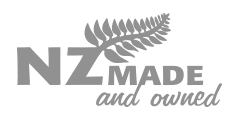 There has been a lot of debate in recent times about the sources of various raw materials we and others use to make our products.
There has been a lot of debate in recent times about the sources of various raw materials we and others use to make our products.
Surfactants, that play a critical part in most cleaning products, are derived from a variety of sources. The traditional use of petrochemical-derived surfactants has come under fire in the last decade or so due to their “non-sustainable” (non re-newable) status and has led to looking at “greener” or more sustainable options – those that can be generated from farm harvested sources.
The demand for vegetable oils in general has increased significantly in the past decade for two main reasons. Vegetable oils and in particular palm oil are cheaper to produce than animal sourced edible oils. The majority of crude oil taken from the earth’s crust are used for transportation fuels. Now due to the demand for bio fuels the transportation sector are turning to vegetables and particular palm oil.
While we do not know accurately the available petrochemical resource (from oil – which interestingly came originally from decomposing plant and animal matter) it seems an obvious preference to opt for those more naturally occurring “green” surfactants. These can come also from a variety of sources… Coconut, Palm, Sugar, Corn and others.
Palm oil seems a good choice as it grows fast and provides a source of employment for developing nations. The problem has been that same nations have seized this opportunity and have (and still do at a rapid pace) de-forest natural habitats and convert that land for the growing and harvesting of palm trees for the production of palm oil. Why is that bad? It takes away the natural forests that cover the land, which provide an essential role in the worlds ecosystem, that harbour all manner of animals and insects, that includes Orangutan, Tigers and endangered birds, and forces the relocation of native dwellers – people in villages, with families.
CSL does its best to balance the needs of its customers with the needs of the world environment. At present we chose to source surfactant raw materials from a variety of sources.
Products containing palm oil are only chosen from suppliers who subscribe to the best international standards for transparency and ethical responsibility – that way ensuring we are not putting people, plants animals and the environment in 2nd place. We select suppliers who are members of the Roundtable on Sustainable Palm Oil (RSPO). See Green Palm.
The RSPO makes every possible endeavour to secure fundamental rights for villages and farmers and all environmental impacts are at an absolute minimal. Our chosen supplier of palm based surfactant has undertaken to be sourcing 85% of all their palm oil from sustainable palm plantations.
Is there anything else other than Palm Oil?
Coconut and vegetable derived surfactants are available, but they also carry the same sorts of issues. Coconut for example is much slower growing than other options and produces less than half the oil volumes per hectare than what palm does. So in terms of efficiency palm oil is a far superior source.
What’s round the corner?
There are solid initiatives underway in particular in the area of algae-based materials. These are readily grown and if controlled, do not harm natural waterways and could provide raw materials and other forms of energy in an incredibly efficient and economically and environmentally cost effective way.
